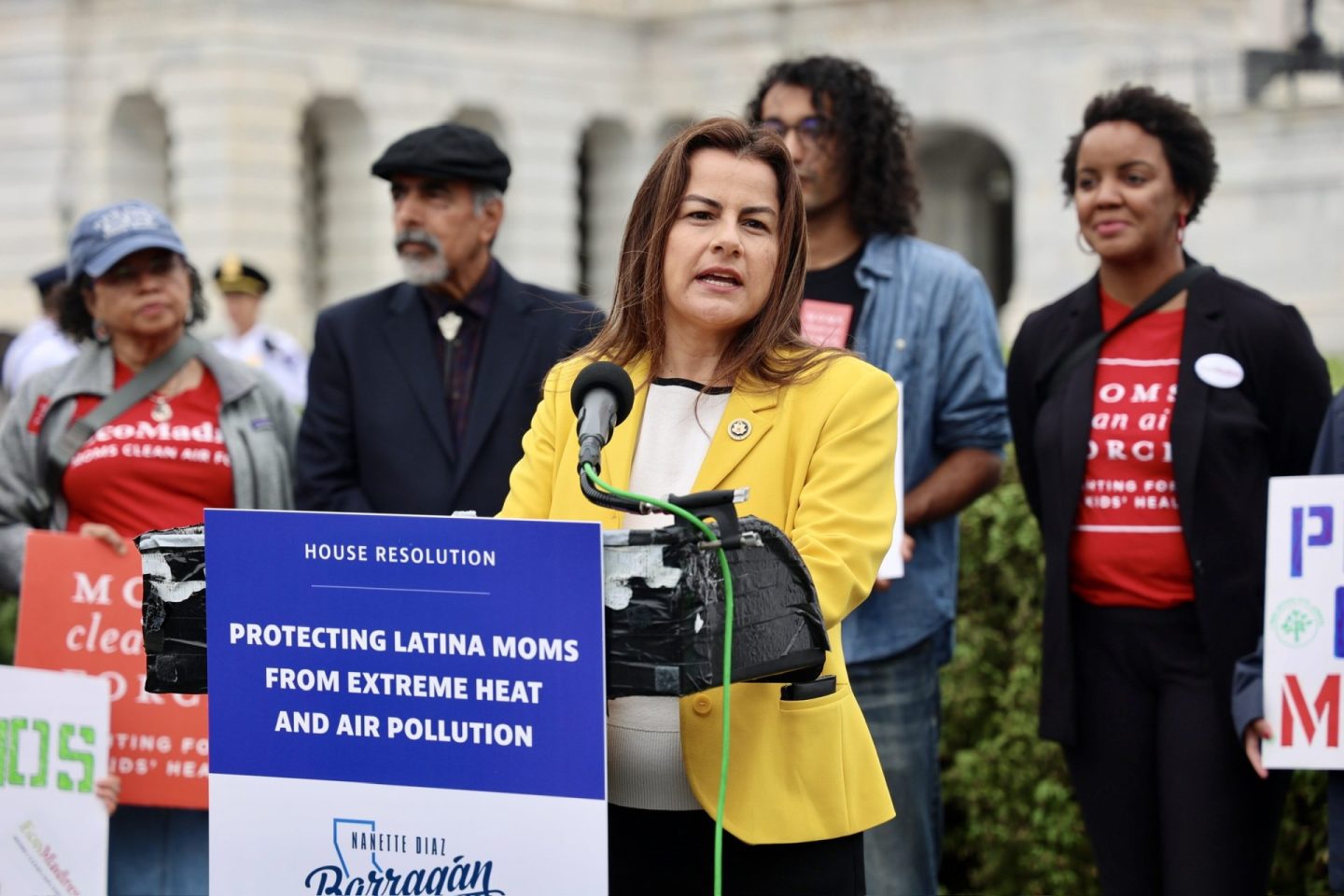
Climate change is not a future threat—it impacts communities across the United States right now, including Latino communities. Whether it’s the crushing heat we experienced across the country this summer or the devastation caused by Hurricanes Milton and Helene in large swaths of the South, we are experiencing the effects of climate change right now.
As the Representative for California’s 44th Congressional District, I know firsthand the devastating impacts of climate change on our Latino communities. Surrounded by several of Southern California’s busiest freeways, home to the Port of Los Angeles and the refineries and urban oil drilling in Wilmington, and heavy industry in the communities of Carson and South Gate, our district is on the frontlines of toxic air pollution as well as the climate crisis. These communities are exposed daily to harmful emissions and extreme heat exacerbated by climate change, putting them at risk of respiratory illnesses and heat-related health problems.
The Port of Los Angeles, America’s busiest container port, is both an economic engine and a source of significant environmental justice challenges for our community. While it supports millions of jobs nationwide, it also brings a heavy burden of air pollution from ships, trucks, and nearby refineries. This pollution disproportionately affects the largely Latino and low-income communities in San Pedro and Wilmington, where we see high rates of asthma and respiratory diseases. However, with increased investments in zero-emission technology and clean energy, we have an opportunity to significantly reduce these health disparities and create healthier communities.
It’s no surprise that climate consistently ranks as a top issue for Latino voters. UnidosUS and Mi Familia Vota found that 81% of Latinos describe climate change as a top personal concern. With Latinos representing 50% of the total growth in eligible voters since 2020, their voice is crucial in shaping climate policy. As a Member of Congress, I’ve been pushing for concrete actions because I understand firsthand how these disproportionate environmental impacts exacerbate longstanding inequities in our communities.
While the Infrastructure Law and the Inflation Reduction Act (IRA) were significant steps forward, there remains much work to do to meet the urgent needs of our communities. The Latino Climate Justice Framework (LCJF) by GreenLatinos lays out a comprehensive framework for how we must expand on these commitments to see tangible results in our communities, particularly to address transportation and shipping-related pollution.
In California’s 44th District, we must accelerate the adoption of zero-emission technologies at the Port of Los Angeles. This includes electrifying port equipment, implementing shore power for ships, and transitioning to zero-emission trucks for goods movement. I am pushing for increased federal funding to support these initiatives, and for the EPA to approve California’s Clean Air Act Waiver applications that phase in requirements for new trucks, harbor craft, and trains to be zero-emission.
This builds on the $3 billion I secured in the Inflation Reduction Act for zero-emission port equipment and technology, including charging infrastructure, which will reduce emissions from ports and create good-paying green jobs in our communities.
We must also recognize that shipping is the largest source of pollution at our ports. It’s important that President Joe Biden issue an Executive Order with specific actions that will significantly reduce emissions from the shipping sector across the U.S.
As we transition to cleaner technologies, we must ensure that our workforce, including Latino workers in port-related industries, is not left behind. Federal funds meant for port electrification cannot be used for automation, and we need to support job training, upskilling, and re-skilling for workers in and around the ports as equipment is replaced. The proposed workforce training facility by the Ports of Los Angeles and Long Beach for the goods movement sector is an important step.
For Latino communities like ours in Southern California, our work to fight the climate crisis is not just about environmental protection—it’s about justice, health, and economic opportunity.
I’m committed to fighting for these policies and ensuring that our community’s voice is heard in the halls of Congress. But I can’t do it alone. We need every eligible voter, particularly those from Latino and marginalized communities, to make their voice heard in this election.
Let’s work together to build a cleaner, healthier, and more just future for the 44th District and all Latino communities across the nation. The time for bold climate action is now, and Latinos will lead the way.
More must-read commentary published by Fortune:
The opinions expressed in Fortune.com commentary pieces are solely the views of their authors and do not necessarily reflect the opinions and beliefs of Fortune.

